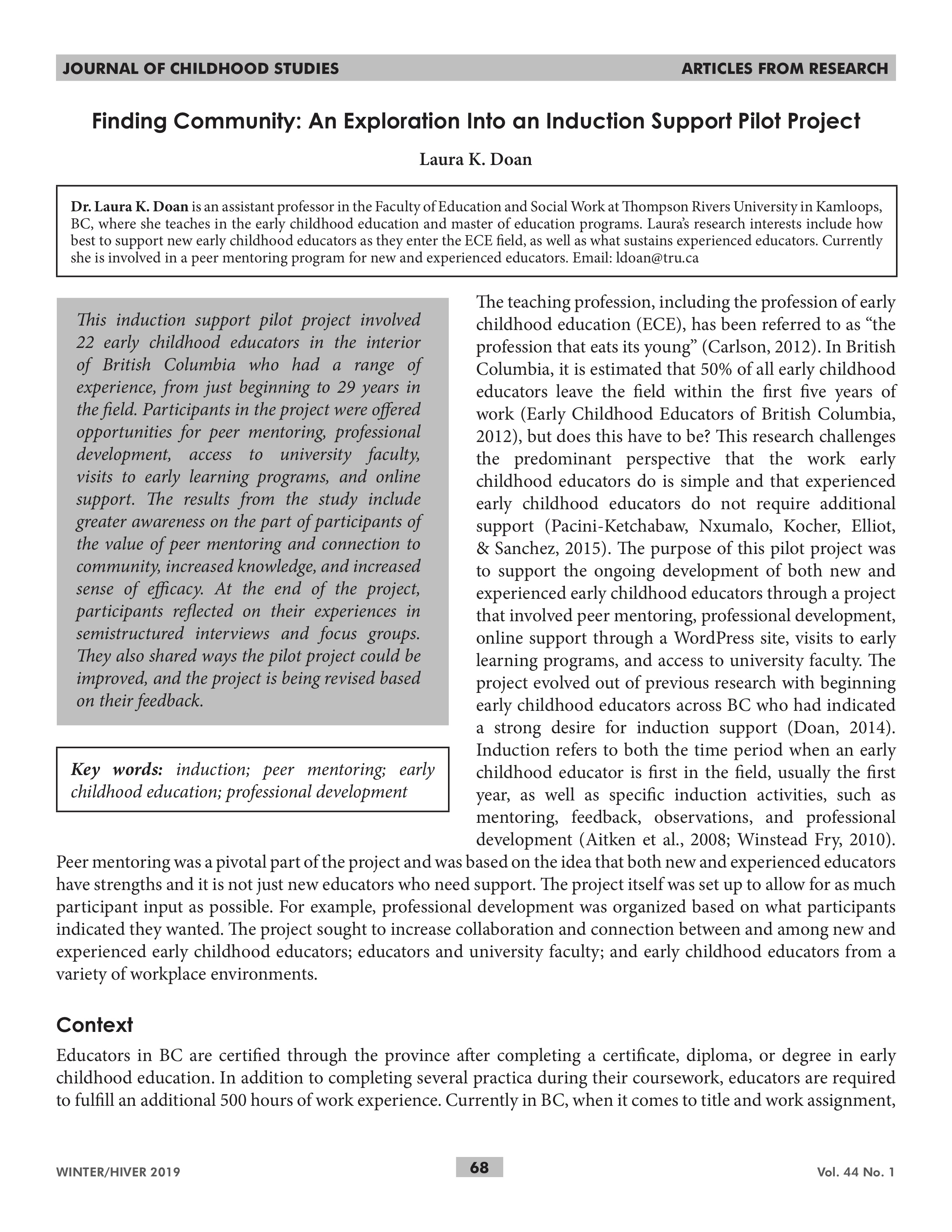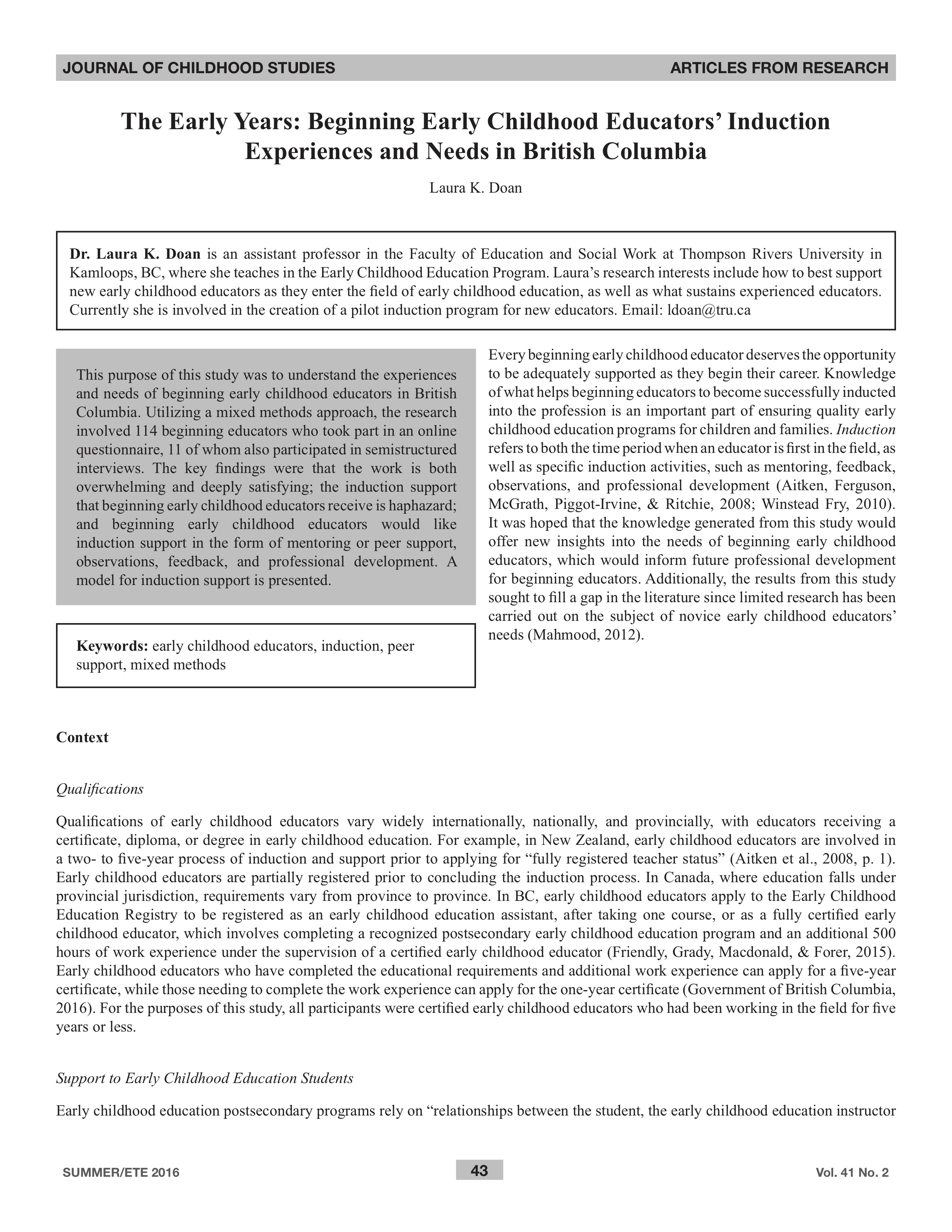I was able to open up a bit more about the struggles I feel when it comes to the financial state of ECEs. I told her [my peer mentor] that it is hard because the schooling is expensive and it is very hard to make living wage once you are done
ECE, Quesnel, Reflection
Current Project
Our home page covers the most current and detailed overview of the project.
To learn about the history of this project, click here.
Pilot project

Doan, L. (2019). Finding community: An exploration into an induction support pilot project. Journal of Childhood Studies, 44(1), 68-79.
This induction support pilot project involved 22 early childhood educators in the interior of British Columbia who had a range of experience, from just beginning to 29 years in the field. Participants in the project were offered opportunities for peer mentoring, professional development, access to university faculty, visits to early learning programs, and online support. The results from the study include greater awareness on the part of participants of the value of peer mentoring and connection to community, increased knowledge, and increased sense of efficacy. At the end of the project, participants reflected on their experiences in semistructured interviews and focus groups. They also shared ways the pilot project could be improved, and the project is being revised based on their feedback.

